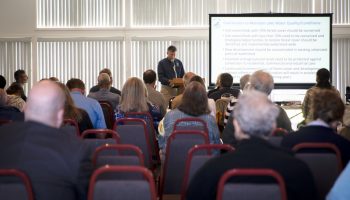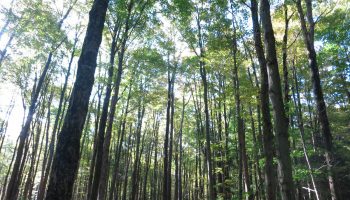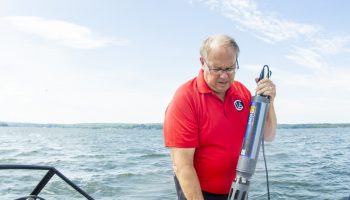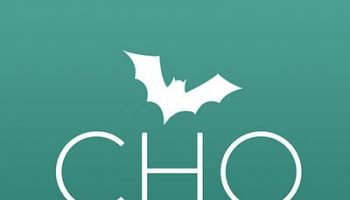His great-grandfather piloted steamboats around Chautauqua Lake. A fifth-generation resident of Bemus Point and self-described “lake rat,” Fletcher “Ned” Ward grew up across the street from the L-S Aero Marine supply store. Surrounded by fishing and boating, he fell in love with the lake and its history.
“It’s hard not to like,” Ward said.
Ward has written four books about the local history of the lake and community, co-authoring two others. His latest work, Saving Chautauqua’s Muskies, and its material will be the focus of the 6:30 p.m. lake walk on Monday, July 2, at the lakeside porch of the Youth Activities Center near Heinz Beach.
The depletion of the lake’s muskellunge, or muskie, population has been a hot-button issue in recent years. Ward will provide information, as well as data, from a local fish hatchery. His 2013 book highlights the few men who are helping bring the fish back from endangerment.
“The very early residents here didn’t have a way to make a living,” Ward said. “Timber in the winter, outside of that, some farming. They turned to catching fish for the hotels around the lake, food for the tourists.”
Muskellunge, known then as “Chautauqua pickerel,” was a commodity that soon became a rarity, Ward wrote in his book. Records showed over 200,000 pounds of the fish were taken from the lake some years, leading to local fishermen introducing other species such as bullhead and salmon trout to counteract the depletion. The Chautauqua County Legislature eventually introduced laws prohibiting the hunting of these fish with spears and nets.
Through better-developed processes, local hatcheries are helping to stabilize the muskellunge population in the lake. Currently, around 14,000 muskies are released a year, or about one per acre. Ward will present statistics from this year’s rearing and netting at his presentation. He will also address the lake’s health and its management.
Ward wrote to the New York State Department of Environmental Conservation during an open comment period to express concerns about the timing of the herbicide application on the lake. Ward had concerns with the original timing of the application, planned for early May, an important time for the muskellunge spawning.
“We need to work toward addressing the causes, and I hope that’s the way various groups around the lake will go,” Ward said. “It seems to be a very short-sighted solution to the issue.”
Ward said he believes there have been short-term fixes over the years and that the county needs to think more deeply about the lake, which remains a nationally ranked fishing lake.
The Lake Walks are provided by the Bird, Tree & Garden Club in partnership with the Chautauqua Watershed Conservancy. The conservancy manages selecting the various presenters.
“We wanted to do more about fishing in the lake,” said BTG President Angela James. “What’s greater than the muskie? With the decline in recent years, there’s a real effort to manage that, and who greater to speak about that than Fletcher Ward?”
Ward currently serves as president of the Bemus Point Historical Society and holds membership in the Fenton Historical Society and Chautauqua County Historical Society. Some of his other works include Chautauqua Lake’s Great Race and Chautauqua Lake’s Ice Industry (1865-1935).






